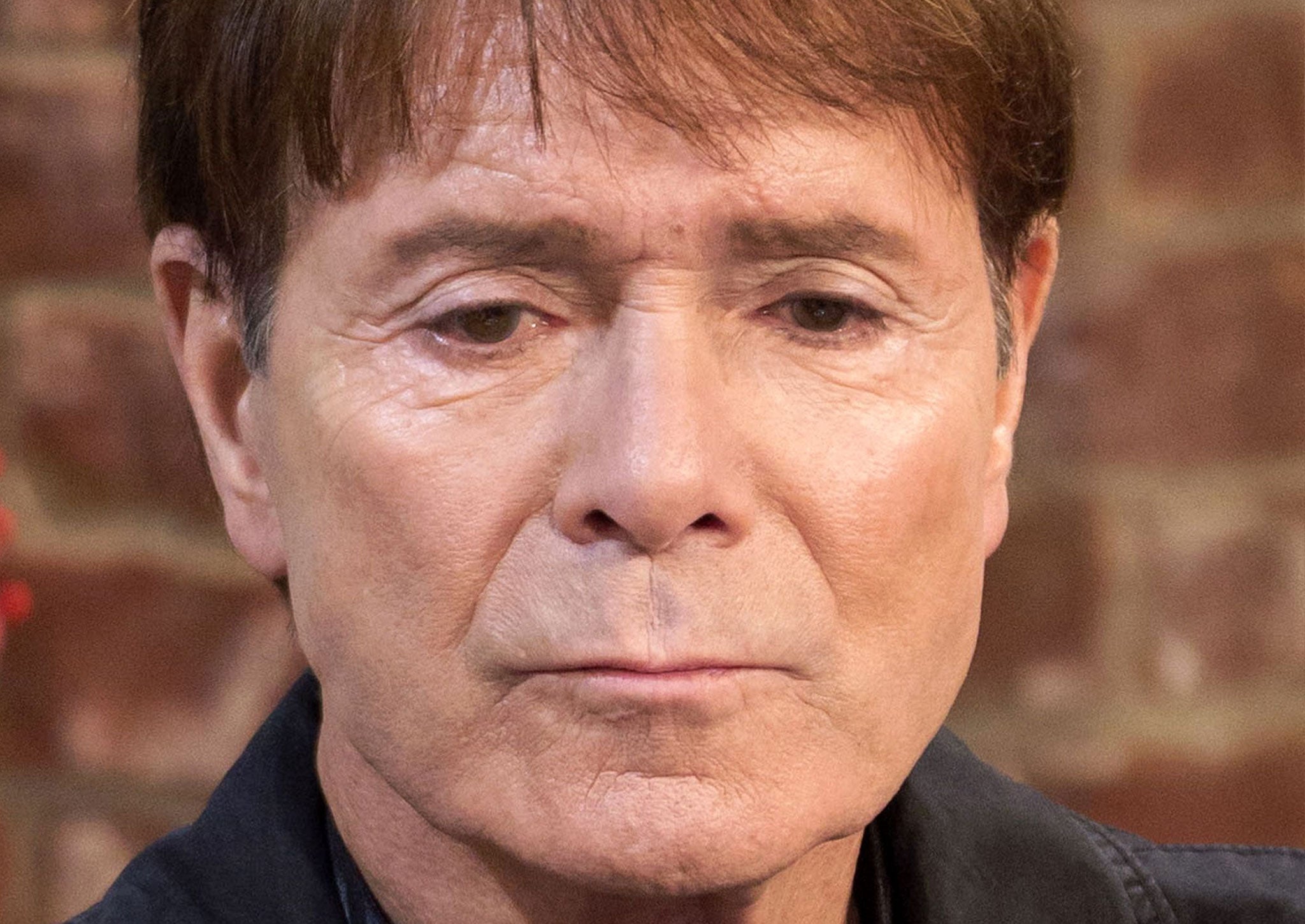The Independent's journalism is supported by our readers. When you purchase through links on our site, we may earn commission.
The way the police have treated Cliff Richard is completely unacceptable
Due process has been subverted in a case that raises urgent questions on civil liberties


People believe that where there’s smoke there’s fire, but sometimes there is just a smoke machine.
By treating Cliff Richard as though he were a bank robber or a mass murderer, the police from Thames Valley and South Yorkshire, aided and abetted by the BBC and a Sheffield lay justice, have blasted his reputation around the world without giving him the first and most basic right to refute the allegation.
Last year, apparently, a complaint was made to police that the singer had indecently assaulted a youth in Sheffield a quarter of a century ago. The police had a duty to investigate, seek any corroborating evidence, and then – and only if they had reasonable grounds to suspect him of committing an offence – to give him the opportunity to refute those suspicions before a decision to charge is made.
But here, police subverted due process by waiting until Richard had left for vacation, and then orchestrating massive publicity for the raid on his house, before making any request for interview and before any question could arise of arresting or charging him.
Police initially denied “leaking” the raid, but South Yorkshire Police finally confirmed yesterday afternoon that they had been “working with a media outlet” – presumably the BBC – about the investigation. They also claimed “a number of people” had come forward with more information after seeing coverage of the operation – which leads one to suspect that this was the improper purpose behind leaking the operation in the first place. This alone calls for an independent inquiry.
The BBC and others were present when the five police cars arrived at Richard’s home, and helicopters were already clattering overhead. Police codes require that “searches must be conducted with due consideration for the property and privacy of the occupier and with no more disturbance than necessary” – here, the media were tipped off well ahead of time, and a smug officer read to the cameras a prepared press statement while the search was going on.
The police, by choosing to raid the property in broad daylight where they must have known its occupant was away, deliberately chose to defame him. Police codes also insist that “the officer in charge of the search shall first try to communicate with the occupier” but of course no such attempt was made – Richard first heard of the search when his lawyers called him after watching it on television.
Why was a search warrant granted? The law (the 1984 Police and Criminal Evidence Act) requires police to satisfy a justice of the peace not only that there are reasonable grounds for believing an offence has been committed (if so, why had he not already been arrested?), but that there is material on the premises both relevant and of substantial value (to prove an indecent assault 25 years ago?).
Moreover, the warrant should only be issued if it is “not practicable to communicate” with the owner of the premises – and it would be a very dumb police force indeed that could find no way of contacting Cliff Richard. The police Codes exude concern that powers of search “be used fairly, responsibly, with respect for occupiers of premises being searched” – this search was conducted without any fairness or respect at all, other than for the media who were given every opportunity to film the bags of “evidence” being taken away.
This in itself is an interesting example of how historic English liberties – the rule against “general search warrants” achieved by John Wilkes in the 18th century – are now ignored. Although there is a section of the law headed “Search warrants – Safeguards” and a provision which requires police when applying for a warrant to actually identify the article they are looking for, this is routinely ignored. Here the police searched for five hours and took whatever they wanted.
This behaviour is unacceptable. The lay justice system has long been the Achilles heel of our civil liberties: many of these amateurs simply rubber stamp police requests. It is not known who issued this warrant (although the High Court has held that the identities of JPs should be made public).
What qualifications did he or she have and what steps were taken to protect the occupier’s privacy? What justification did the police give for this general search, with world-wide publicity? Was there any questioning of the police, so as to ensure that they could identify what they were looking for, and that it had “substantial value” for a prosecution? How was the Justice of the Peace satisfied that this whole exercise was not an improper means to publicise an uncorroborated allegation against the singer, in the hope of “shaking the tree” to attract further allegations which might give it some credibility? It is time that police were required, other than in emergencies, to obtain search warrants from circuit judges, who are alert to civil liberties.
What will happen now? If the outrageous treatment of Paul Gambuccini and Jimmy Tarbuck is any guide, Cliff Richard will remain in a cruel limbo for 18 months or so until the police and the CPS decide whether to charge him. This has been one of the most intolerable features of other high-profile arrests for "historic" offences, namely the inability of police and prosecutors to deliver Magna Carta’s truly historic promise that justice will not be delayed.
The CPS has taken up to 2 years to tell journalists like Patrick Foster that they will not be prosecuted, after unnecessary dawn raids, and publicity every time they are bailed. This lack of care for their liberty is amoral, because it subjects them to drawn-out psychological cruelty. If the CPS cannot decide whether to prosecute 3 months after receiving the police file, it should not prosecute at all.
A case like that of Cliff Richard could not happen in most European countries, where time limits prevent prosecutions of most sexual offences after a lapse of 10 years. Certainly after 25 years, fair trial becomes very difficult, as memories dim, alibi witnesses die and records disappear.
That does not necessarily mean that a prosecution is unjustified, especially in the case of those in positions of authority (priests, teachers, politicians etc) but it does require extra vigilance by law enforcement authorities to ensure that those under investigation do not have their names prematurely besmirched, and that they be given a fair opportunity to refute allegations before they are brought to court.
The police behaviour is also in plain breach of the privacy provisions of article 8 of the European Convention of Human Rights. But this case involves good old English civil liberties, laid down not 25 years but 250 years ago, in the course of a battle between John Wilkes and the government of George III. The Chief Justice then declared that an Englishman’s home was his castle – which must come as news to the South Yorkshire and Thames Valley police.
It is clear from their behaviour that an Englishman’s home is no longer a castle – even when, in Cliff Richard’s case, it is.
Geoffrey Robertson QC’s latest book is Stephen Ward was Innocent, OK